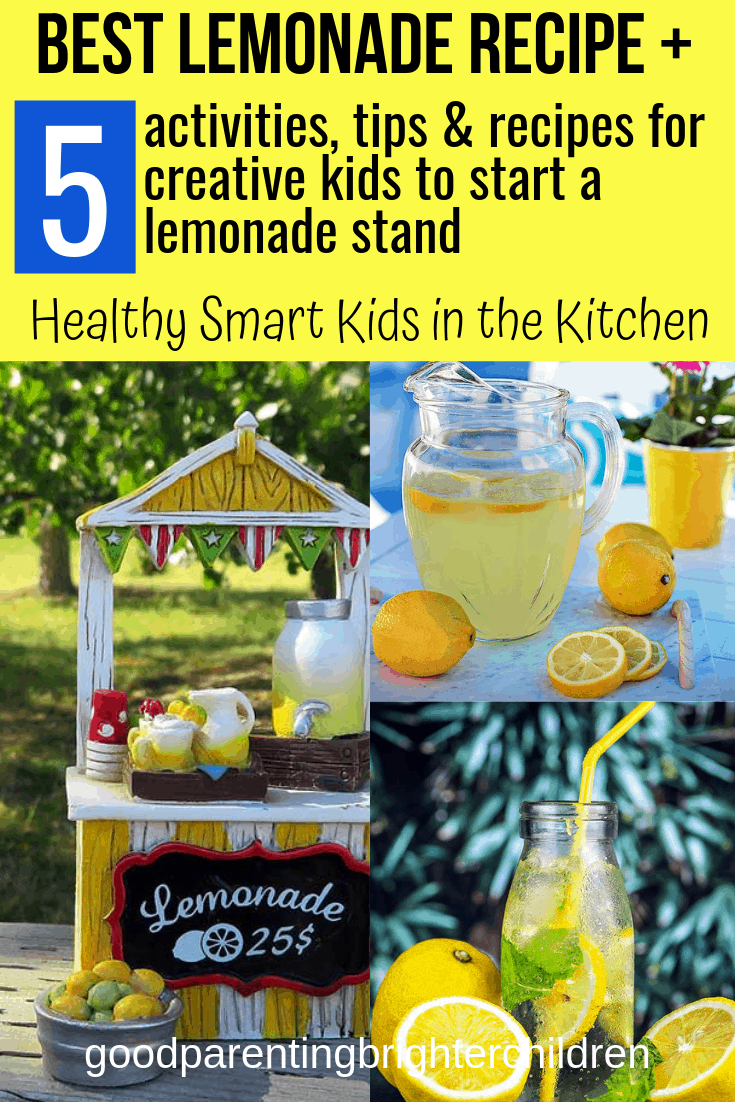
The most recent Gallup-HOPE survey on youth entrepreneurship finds that from 2011 to 2016, the percentage of U.S. “I think sometimes there’s an assumption that entrepreneurs are born, but in a lot of cases, it’s really about having the knowledge and influencing their attitude fairly early that affects a kid going on to become an entrepreneur later in life,” said Ed Grocholski, a senior vice president for Junior Achievement USA, a nonprofit that promotes youth entrepreneurship. “That’s why many entrepreneurs don’t get educated in school, and don’t like school.” A New ‘Pipeline Problem’īusiness leaders argue that the nation’s economy could benefit from a K-12 “pipeline” for young entrepreneurs that mirrors ongoing efforts across the country to interest students in the science, technology, engineering, and math fields.
GROCERY OR LEMONADE STAND FOR KIDS HOW TO
“We are seeing kids who are very well taught in how to be the best employees, but there’s nothing teaching them to be their own boss,” said Nathalie Virem, an entrepreneurship professor at California State University, Los Angeles. All kids deserve the chance to learn entrepreneurship from an early age, so Hayli’s Law is a good step towards making that happen.Jemma Walker, a rising 7th grader, pitches her lemonade to customers entering a Krogers grocery on Lemonade Day last month in southern Indianapolis. Illinois has a reputation for making business harder than it needs to be for entrepreneurs, even though small businesses create 69% of net jobs in the state. “A lot of little girls around here might not want to start a business,” Hayli had said. Only eight had enacted it by 2018, and it was recently enacted by River Forest and Bradley.

However, counties must approve the law before it can go into effect.
GROCERY OR LEMONADE STAND FOR KIDS PROFESSIONAL
That inspired the 2014 “ Cupcake Law,” which allows home bakeries to operate without professional certification as long as the baker labels items and doesn’t make over $1,000 a month.

Hayli’s case follows that of another 11-year-old girl in Madison County who was told she could no longer continue her $200-a-month cupcake business. Patrick Joyce, D-Essex, would ensure local government does not try to stop children from selling non-alcoholic mixed beverages on private property or in public parks. Illinois is one of 16 states that do not require permits for lemonade stands, according to Country Time Lemonade.

They cited the lack of water and sewer service to the Martenez’s home – the result of a billing dispute – even though bottled water for the lemonade was purchased at the grocery store. Shortly after being profiled in the Kankakee Daily Journal, city and county health department officials paid the 11-year-old a visit and told her to shut down the stand or face fines. “As we kept doing it, I got to see everybody smile when they tasted my lemonade. We didn’t like to come outside because of all the stuff happening around here,” Hayli said previously. “It was kind of scary because we liked to stay in the house. In a violent neighborhood where people are reluctant to go out, Hayli brought together her Kankakee, Illinois, neighbors as she happily sold 50-cent cups of lemonade. In 2017, Hayli Martenez started her Haylibug Lemonade stand to raise money for her college fund with the help of her mom, Iva. Pritzker to be signed into law to ensure children under 16 can run a lemonade stand without a permit or license. Hayli’s Law unanimously passed the Illinois House May 26 after passing the Illinois Senate in April.

Illinois’ children may soon be safe to sell lemonade without fear of government overreach. Now Illinois is about to bar government from interfering with a child’s right to sell cold summer drinks. When a child’s lemonade stand was targeted by government regulators, the 11-year-old entrepreneur fought back. Hayli’s Law would protect lemonade stands from government in Illinois


 0 kommentar(er)
0 kommentar(er)
